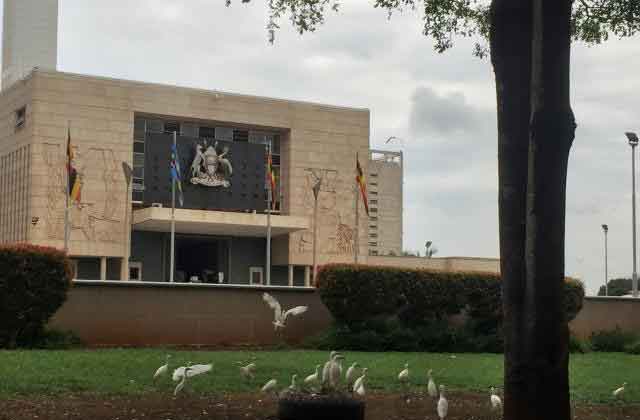
Kampala, Uganda | THE INDEPENDENT | The Uganda Wildlife Authority (UWA) will next week start the process of removing nests and nestling of Marabou storks and cattle egrets from Parliament. This follows concern from Members of Parliament that the birds have become a nuisance and could spread zoonotic diseases.
The move follows a plea by State Minister for Mineral Development Sarah Opendi earlier in September, to the Parliamentary Commission to get rid of Marabou storks around the precincts of Parliament saying they pause a health threat to the MPs.
Opendi who rose to speak with a feather in her hand said that apart from bringing a terrible stench, the birds could be hazardous. It is after this that Parliament wrote to the
National Environment Management Authority (NEMA) and UWA to relocate the birds.
Now UWA’s department in charge of problem wildlife says that they plan to remove the nests from the trees in Parliament and relocate the nestlings as a means to irritate the birds from continuing to settle in Parliament.
Vanice Mirembe, the Officer in charge of problem animals says that they made an assessment at Parliament and observed a need to make the area comfortable for members. She says the process of relocating the birds will start on Tuesday.
According to Mirembe, they have a plan alongside Kampala Capital City Authority (KCCA) to destroy the nests of both Marabou stork and egrets as a means to discourage the birds from continuing to roost and nest. She says the nestling will be taken to the Uganda Wildlife Education Centre in Entebbe, while a continuous effort to destabilize the settlement of the birds will be enforced to ensure that they relocate.
Mirembe says that although they cannot relocate the birds, they can relocate the nestling and destroy the nests so that the birds can get another habitat. She hopes that by continuing to remove the nests, the birds will be discouraged and settle somewhere else.
Mirembe, however, says that the process of removing the nest and relocating the nestling might not be the final solution since the birds need a habitat. The challenge is that Marabou Storks are usually attracted to live in the area because of its surroundings and what they feed on.
The Marabou Stork, one of the biggest and most fascinating birds found in Africa, feast on carcasses and scraps of dead animals, reducing on the accumulation of offensive garbage that has remained a challenge for the city authorities to solve.
She says that because of road construction and deforestation within the city, the birds are looking for places that they can safely breed.
Because the Parliament of Uganda has moved away from the indoor chamber and literally pitched camp in the parking lot, the members are now inconvenienced because the trees around the parking host a marabou storks and cattle egret breeding colony.
********
URN
 The Independent Uganda: You get the Truth we Pay the Price
The Independent Uganda: You get the Truth we Pay the Price





